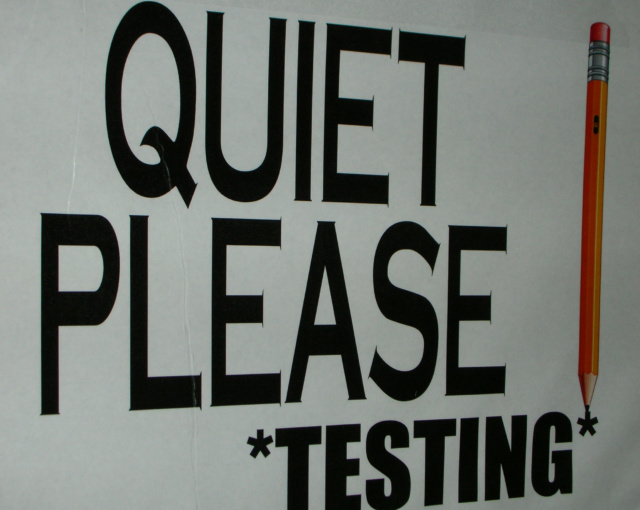The headline of Ben Felder’s front-page story in the May 5 edition of The Oklahoman proclaimed wonderful news: State Re-Examines Testing.
Felder reviewed examples of outrages unleashed by test-driven accountability. He described a Duncan teacher fighting back tears as she read the notes left by some of her algebra students. One wrote, “I hate testing so much,” while another scribbled, “help.”
Yes! A bipartisan grassroots coalition of students, parents and educators, combined with State Superintendent of Public Instruction Joy Hofmeister’s leadership, beat back the testing frenzy of the last decade and a half.
My question is: Will the Oklahoma City Public School System re-examine its bubble-in instruction and change course?
Teach-to-the-test malpractice takes over
Through most of my career, OKCPS high schools were at least semi-successful in resisting “drill and kill” basic skills instruction. By the end of my full-time teaching in 2010, however, my students who came from the poorest elementary and middle schools complained that they had been completely robbed of an education. Nonstop worksheet-driven test prep drove the joy of learning out of school.
It wasn’t until the launch of end-of-instruction graduation exams and the threat of value-added teacher evaluations (when individual students and adults could be punished for low test scores) that teach-to-the-test malpractice took over.
I taught part-time during those maddening years. We could mourn with our students about the damage that was being done to them, but we also had to subordinate our professional values to making sure that our kids weren’t also denied a high school diploma.
Where it gets weird
Oklahoma has now abandoned all non-federally mandated tests. High school students will be required to take a career-readiness test or a college-preparatory test, like the ACT or the SAT. And this is where it gets weird: Everyone knows that high-dollar test prep can jack up ACT and SAT test scores, and “a little” test prep is likely to improve scores for a student who is ready for them. By definition, however, the ACTs and SATs are tests that can’t be taught to.
And this is where it gets weirder: For decades, the makers of ACTs and SATs said unambiguously that it is wrong — and futile — to try to teach to those assessments. After high-stakes testing became a gold mine for those test makers, ACT and SAT have issued mixed messages. They still say that mastering a meaningful curriculum is the best way to prepare for those tests, but the College Board’s CEO, David Coleman, remains the same true believer who gave us Common Core testing. He sees the new SAT as the new means for advancing his “beautiful vision.”
OKCPS must make a choice
Any attempt to teach to the ACT and/or SAT is likely to become a bigger fiasco than Common Core. If the OKCPS tries to do so, the consequences will be even more extreme. High-poverty, low-skill students respond well to challenging, college-readiness instruction. For a variety of complicated reasons, however, progress for students with lower reading skills will always be slower. If the OKCPS tries to extend the aligned and paced instructional model (which became dominant during the last decade) to the new tests, its dropout rate will soar.
I believe that the habits nurtured by the last 15 years of teach-to-the-state-test are about the worst possible preparation for college readiness. I know that, 15 years ago, the overwhelming majority of educators and experts would have endorsed my judgment.
The OKCPS must make a choice. The public demands instruction that is appropriate for college readiness and career prep. The business community calls for graduates with the non-cognitive skills necessary for life in a democracy and on the job.
Will the OKCPS listen, or will it continue with skin-deep, basic skills instruction for standardized tests?






















